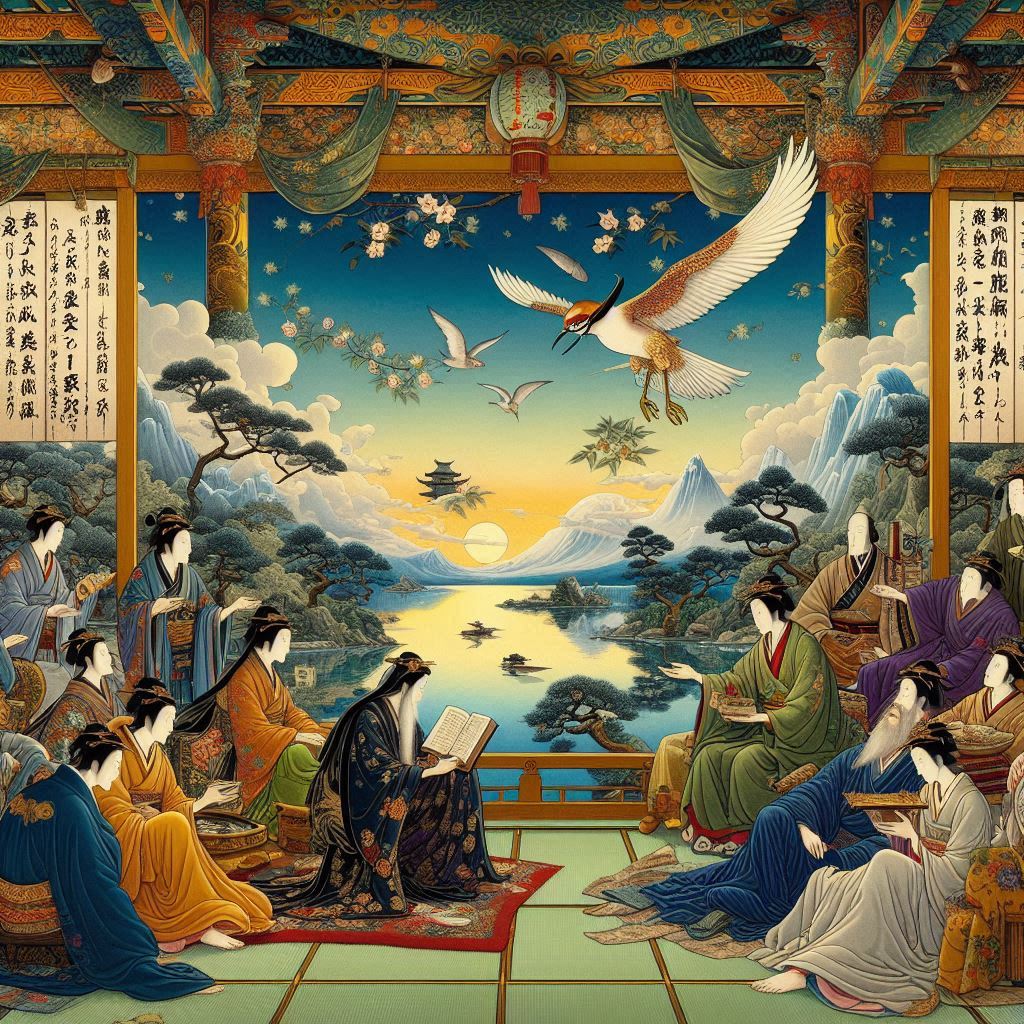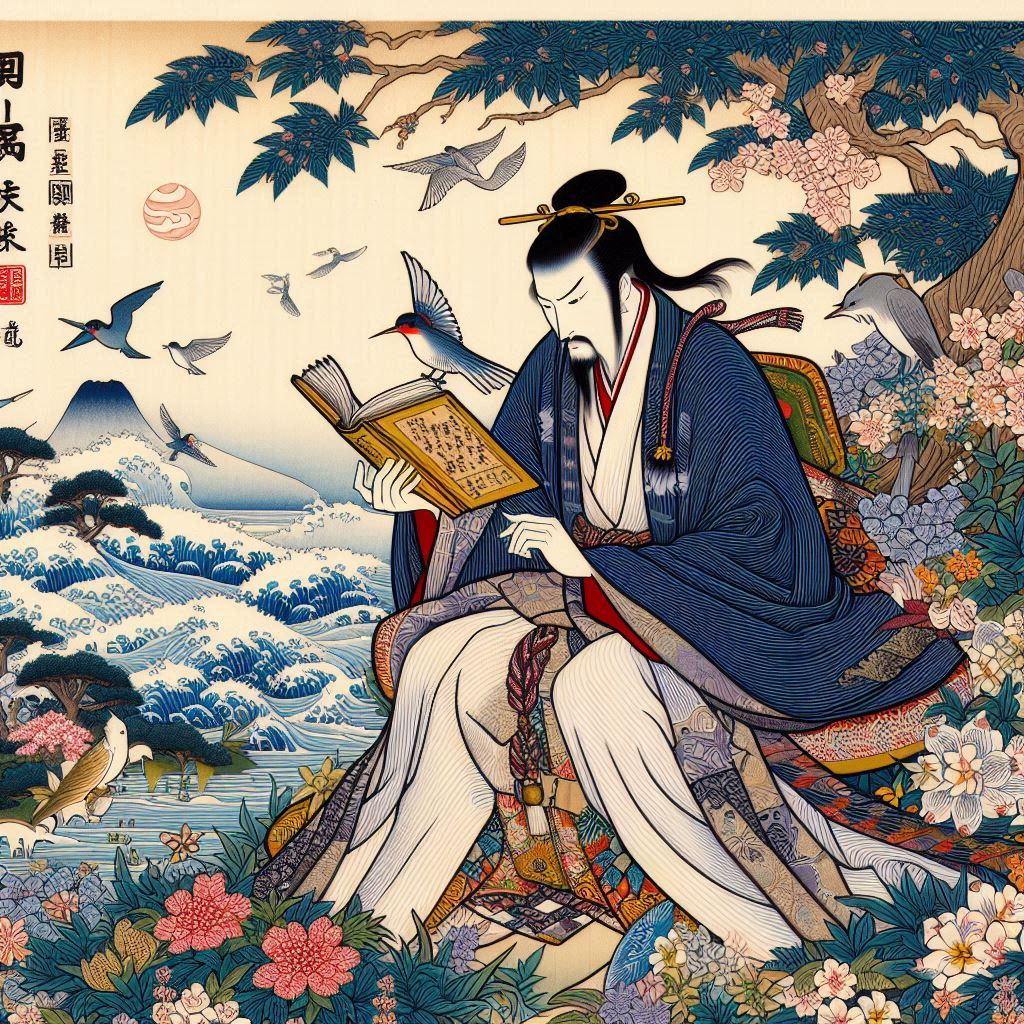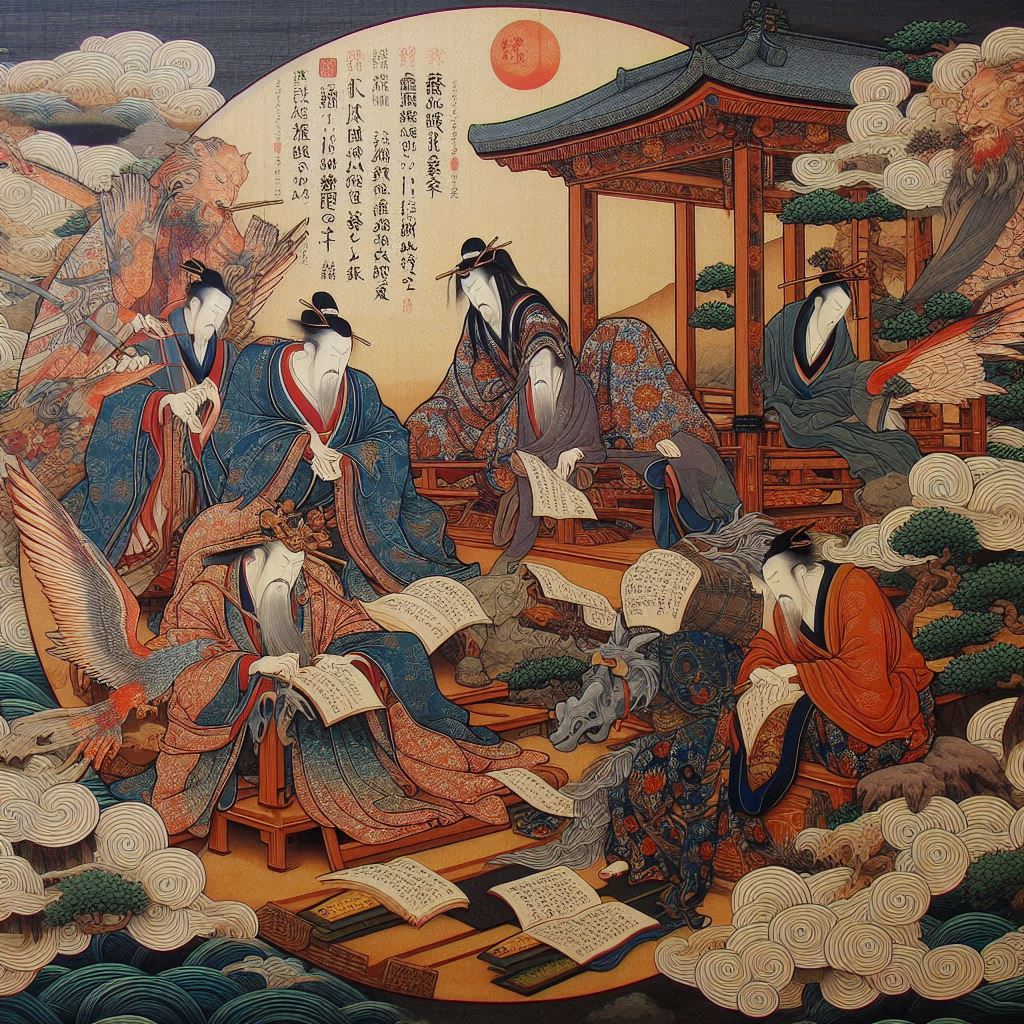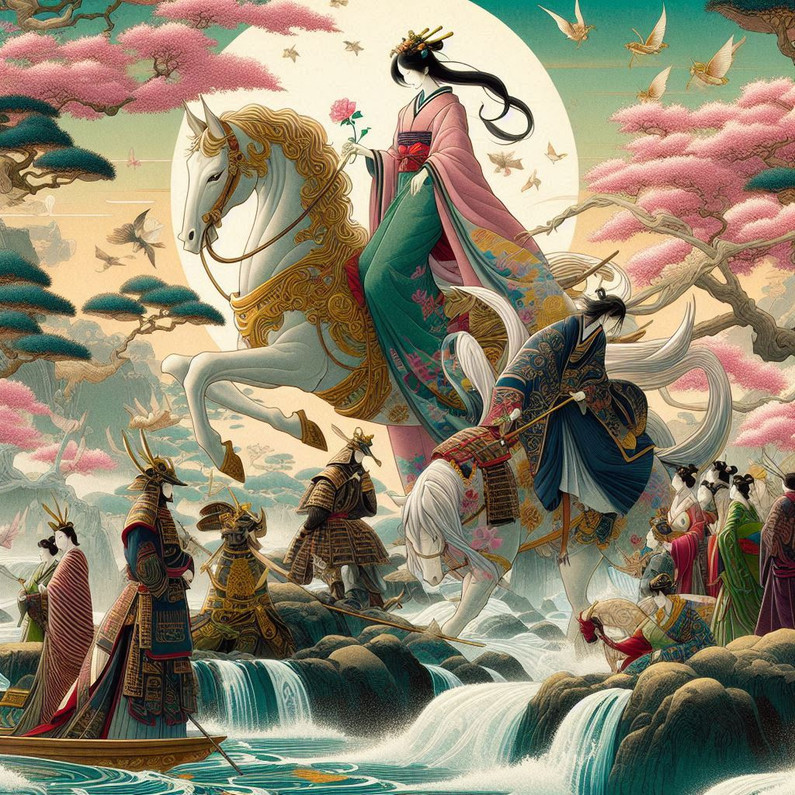The Tale of Genji: Japan's Timeless Literary Masterpiece
Introduction
The Tale of Genji, written by Murasaki Shikibu in the early 11th century, is a cornerstone of Japanese literature and one of the world's earliest novels. This timeless masterpiece offers a profound glimpse into the courtly life of Heian-era Japan, exploring themes of love, politics, and the fleeting nature of life. Its intricate narrative, rich character development, and poetic prose have captivated readers for over a millennium.

**Historical Context**
Murasaki Shikibu, a lady-in-waiting at the Heian court, penned The Tale of Genji during a time of cultural flourishing in Japan. The Heian period (794-1185) was marked by a strong emphasis on aesthetics, poetry, and courtly romance. Writing in an era when literary pursuits were dominated by men, Murasaki Shikibu's work stands out not only for its literary brilliance but also for its unique perspective as a woman in the imperial court.
**Plot Overview**
The Tale of Genji follows the life of Hikaru Genji, the "Shining Prince," a nobleman of exceptional beauty and talent. The narrative spans multiple generations, detailing Genji's romantic exploits, political ambitions, and personal struggles. The story begins with Genji's birth to an emperor and a low-ranking concubine. Despite his noble lineage, Genji is not in line for the throne due to his mother's status. His charm and wit, however, endear him to the court, leading to a series of romantic entanglements and political intrigues. As Genji matures, the novel delves into his deepening relationships, his search for meaning, and the inevitable sorrows that accompany life. After his death, the story continues with the lives of his descendants, further exploring the themes of impermanence and the cyclical nature of existence.

**Themes and Literary Significance**
The Tale of Genji is renowned for its exploration of mono no aware, a Japanese aesthetic concept that captures the beauty and sadness of the transience of life. The novel's characters often grapple with their emotions, reflecting on the impermanence of happiness and the inevitability of change. Love and romance are central themes, depicted with complexity and nuance. Genji's relationships range from passionate to tragic, highlighting the multifaceted nature of human connections. The novel also provides a detailed account of Heian court life, showcasing the customs, clothing, and cultural practices of the time. Murasaki Shikibu's narrative style is another significant aspect of the novel's legacy. Her use of waka poetry, intricate characterizations, and interwoven subplots create a rich tapestry that immerses readers in the world of the Heian court. The novel's psychological depth and emotional resonance have influenced countless works of literature, both in Japan and around the world.
**Cultural Impact and Legacy**
The Tale of Genji has left an indelible mark on Japanese culture and beyond. It has been adapted into various forms, including theater, film, and manga, each interpretation offering new insights into the timeless story. The novel's influence extends to the visual arts, inspiring countless paintings, illustrations, and crafts. In academic circles, The Tale of Genji is studied for its literary and historical significance. Scholars continue to explore its themes, characters, and cultural context, uncovering new layers of meaning in Murasaki Shikibu's work.

**Conclusion**
The Tale of Genji is more than just a novel; it is a profound exploration of the human condition, a window into the cultural richness of Heian-era Japan, and a testament to the enduring power of storytelling. As readers delve into the world of Hikaru Genji, they are transported to a time and place where beauty and sorrow are intertwined, and the fleeting nature of life is both celebrated and mourned. This timeless masterpiece remains a beacon of literary excellence, inviting readers to discover its many wonders time and time again.
Recent Posts
-
Sustainable Splendor: The Eco-Friendly Soul of Handcrafted Art
In an era of fast fashion and mass-produced home decor, the environmental cost of our "stuff" has ne …31st Dec 2025 -
The Art of Diplomacy: Why Handcrafted Heritage is the Language of Dubai’s Protocol
In the world of international relations and government protocol, a gift is never "just a gift." It i …31st Dec 2025 -
The Psychology of Appreciation: Using Bespoke Art to Retain Top Talent in Dubai
In the high-speed corporate environment of Dubai, where the global hunt for talent is relentless, a …31st Dec 2025



